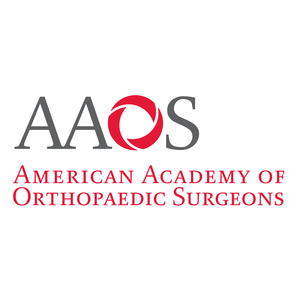New criteria specify when antibiotics are appropriate for dental patients with artificial joints and implants
Most patients with implants do not need antibiotics before dental procedures
ROSEMONT, Ill., Sept. 28, 2016 /PRNewswire-USNewswire/ -- New American Academy of Orthopaedic Surgeons (AAOS) criteria specify when it may be appropriate to consider antibiotic administration prior to various dental procedures to prevent infection of orthopaedic replacement joints or implants. "Appropriate Use Criteria (AUC) for the Management of Patients with Orthopaedic Implants Undergoing Dental Procedures" was recently approved by the AAOS Board of Directors.
Most patients with replacement hip, knee, shoulder or other implants, are not at risk for infection following dental procedures. However, there are a small number of patients—those with severely compromised immune systems due to AIDS, uncontrolled diabetes or chemotherapy; a recent history of joint infections; and/or patients taking specific drugs for rheumatoid arthritis or to prevent organ transplant complications—who should receive consideration for antibiotic administration prior to dental procedures. In these patients, infection may occur during the procedure when bacteria travel through the blood stream to the implant, which cannot fight off disease or infection. A severe infection will most likely require surgery at the site of the implant infection, and may even cause death.
Because infections can be so dangerous, "surgeons and dentists prefer to err on the side of caution in the most high-risk patients," said Robert H. Quinn, MD, AUC section leader, AAOS Committee on Evidence-Based Quality and Value. And yet, antibiotic overuse throughout the health care system has made many types of bacteria resistant to treatment.
"These guidelines will hopefully help to decrease antibiotic use in patients with artificial joints, but still provide reasonable scenarios when they might be considered," said Dr. Quinn.
The AUC, available through the AAOS OrthoGuidelines website and app, includes questions for clinicians to gauge risk related to the type of dental procedure, given the patient's implant status and overall health. There are 64 scenarios, each with an antibiotic "appropriateness rating" from 1 to 9, determined by a 14-member voting panel of orthopaedic surgeons, dentists, oral surgeons and epidemiologists. A rating between 7 and 9 means that antibiotic use is "appropriate for the indication provided…and is likely to improve the patient's health outcomes or survival." With a rating of 4 to 6, antibiotics "may be appropriate;" and 1 to 3, "rarely appropriate." Specific antibiotics and dosage are provided for scenarios when antibiotic treatment is recommended.
The American Academy of Orthopaedic Surgeons
With more than 39,000 members, the American Academy of Orthopaedic Surgeons (AAOS) is the world's largest association of musculoskeletal specialists. The AAOS provides education programs for orthopaedic surgeons and allied health professionals, champions and advances the highest musculoskeletal care for patients, and is the authoritative source of information on bone and joint conditions, treatments, and related issues.
For more information, visit:
Newsroom.aaos.org for bone and joint health news, stats, facts, images and interview requests.
ANationinMotion.org for inspirational patient stories, and orthopaedic surgeon tips on maintaining bone and joint health, avoiding injuries, treating musculoskeletal conditions and navigating recovery.
Orthoinfo.org for patient information on hundreds of orthopaedic diseases and conditions.
SOURCE American Academy of Orthopaedic Surgeons
Related Links
WANT YOUR COMPANY'S NEWS FEATURED ON PRNEWSWIRE.COM?
Newsrooms &
Influencers
Digital Media
Outlets
Journalists
Opted In





Share this article